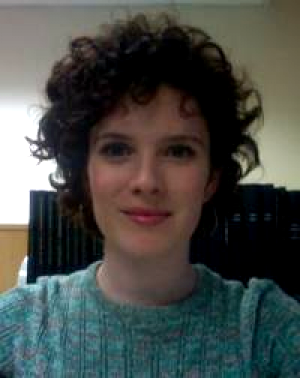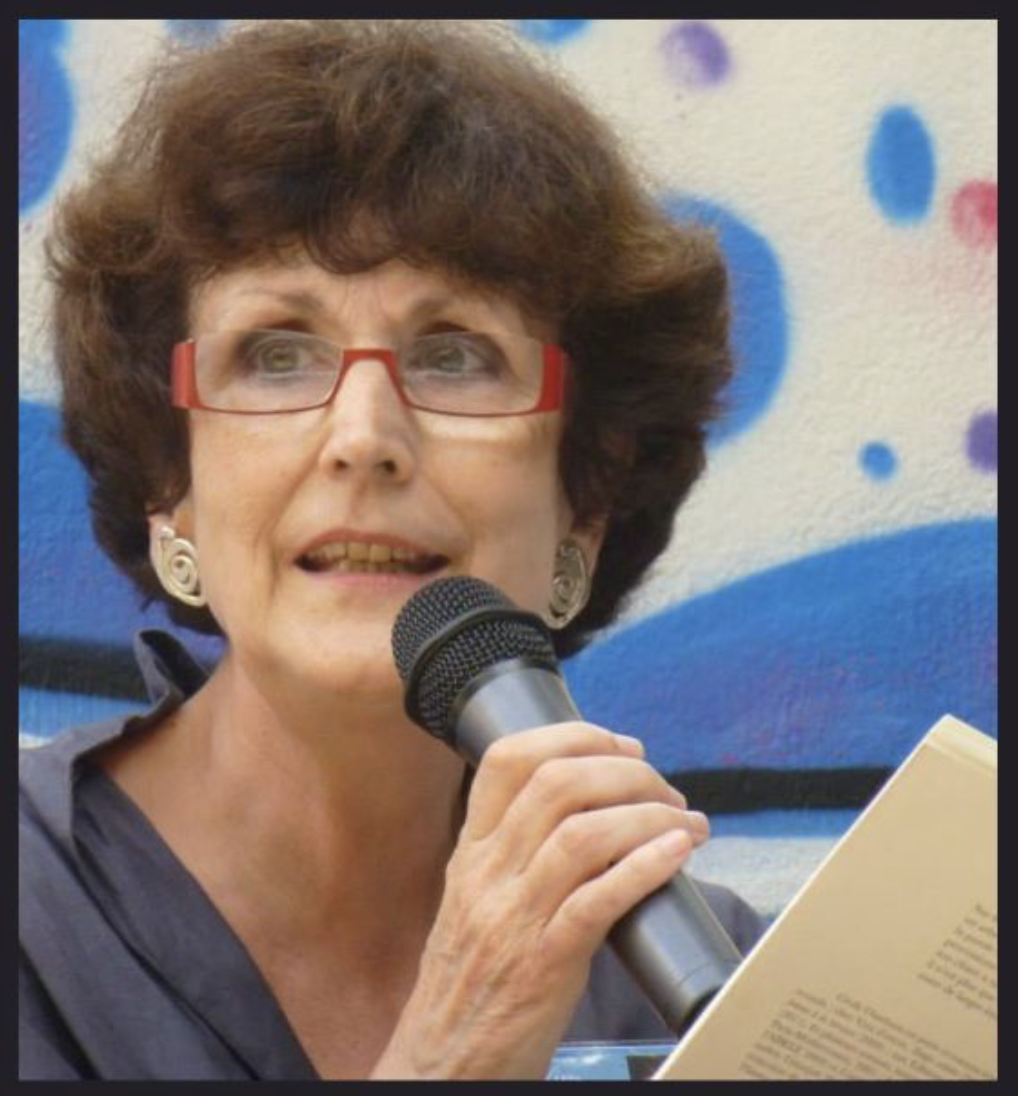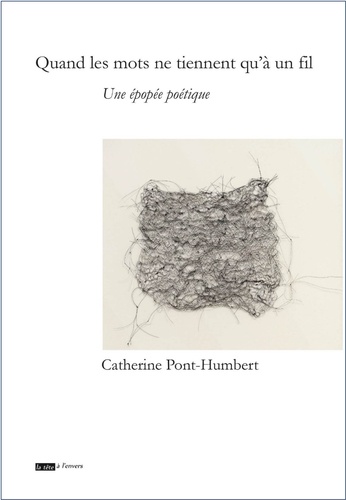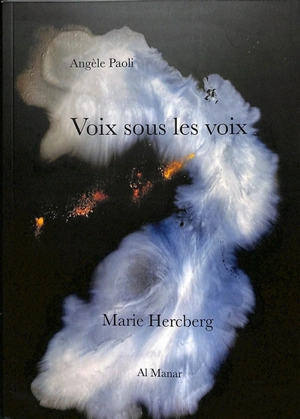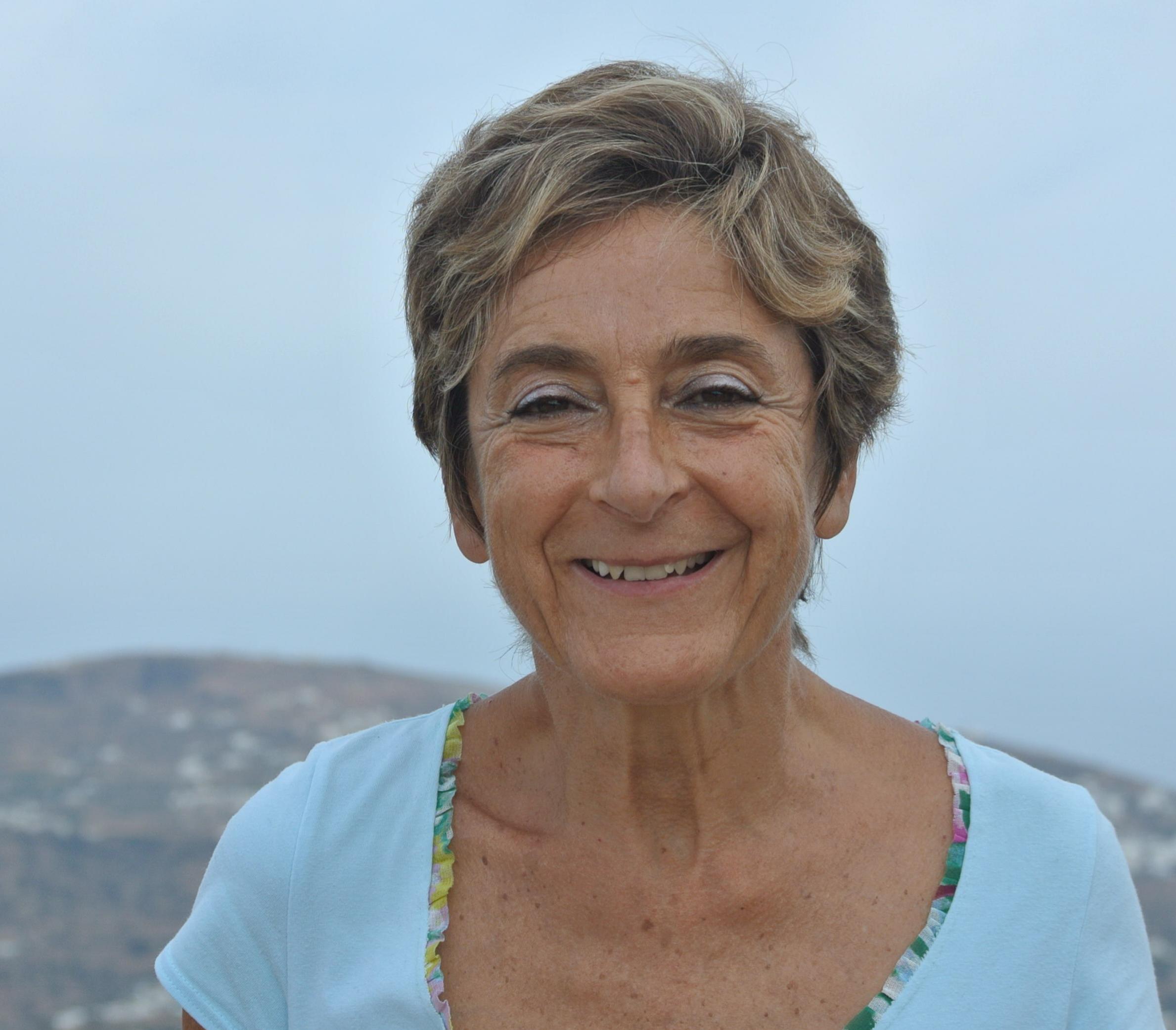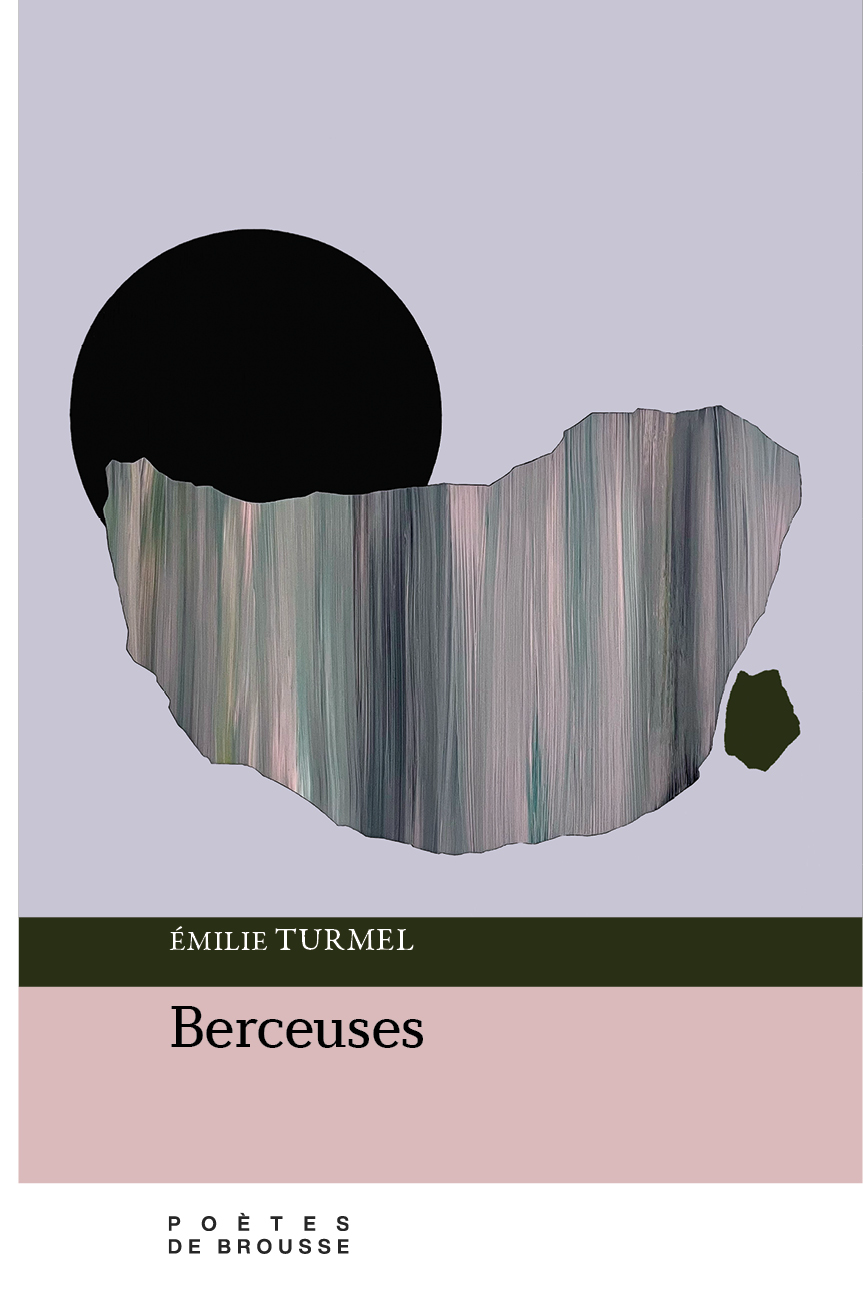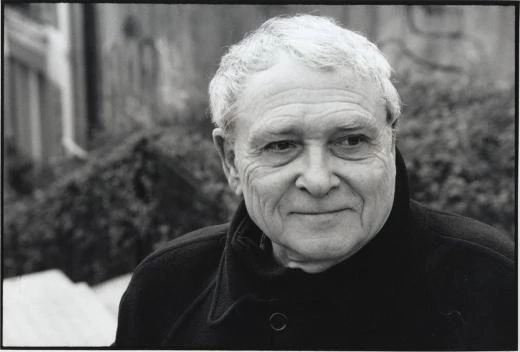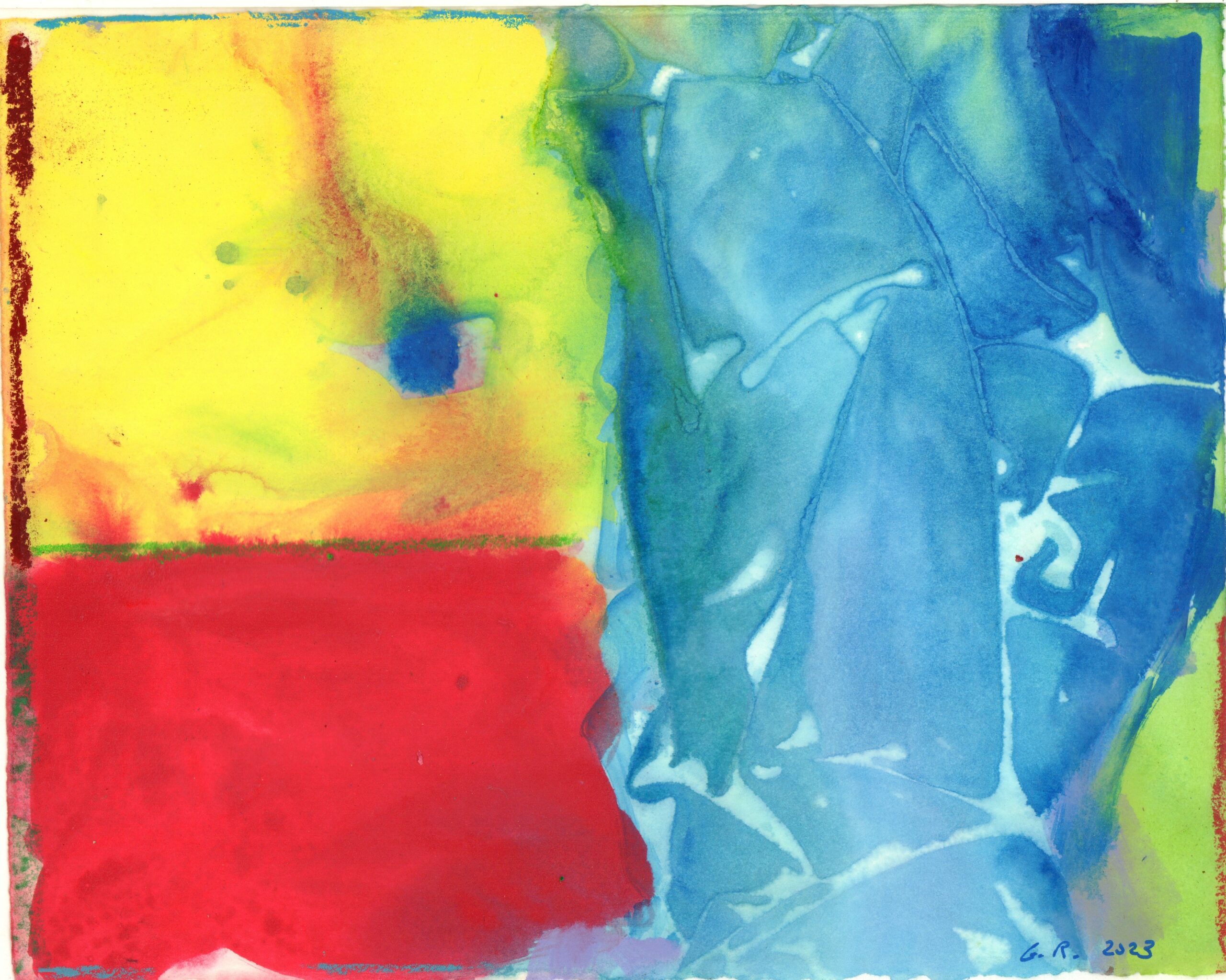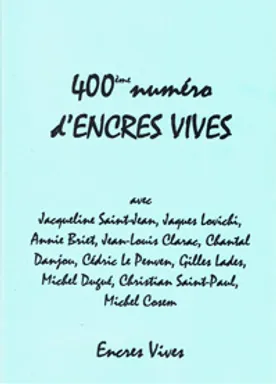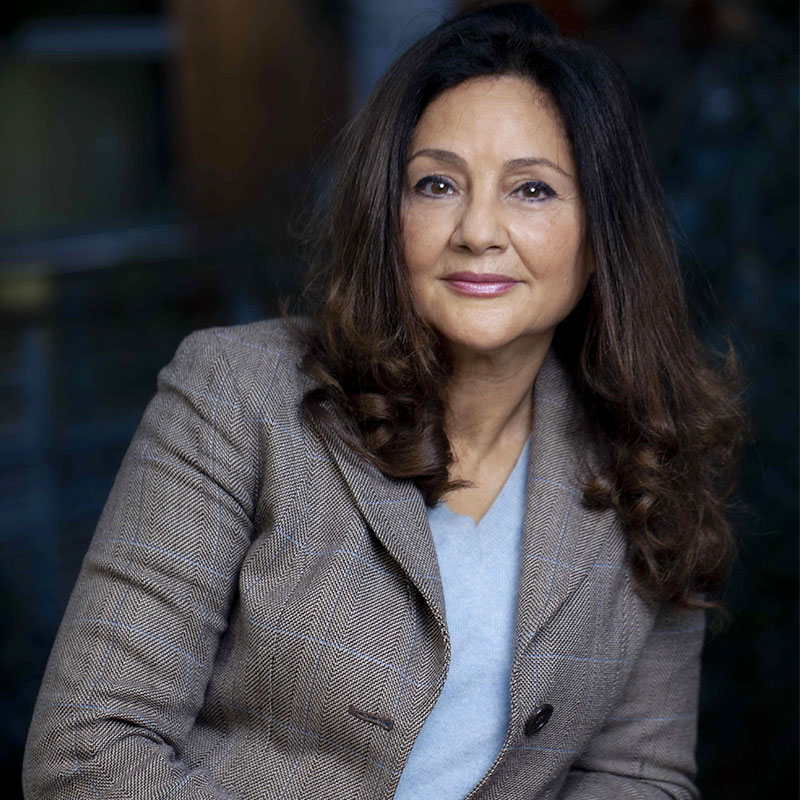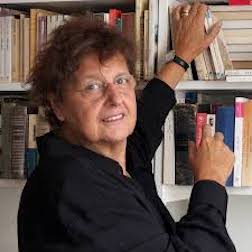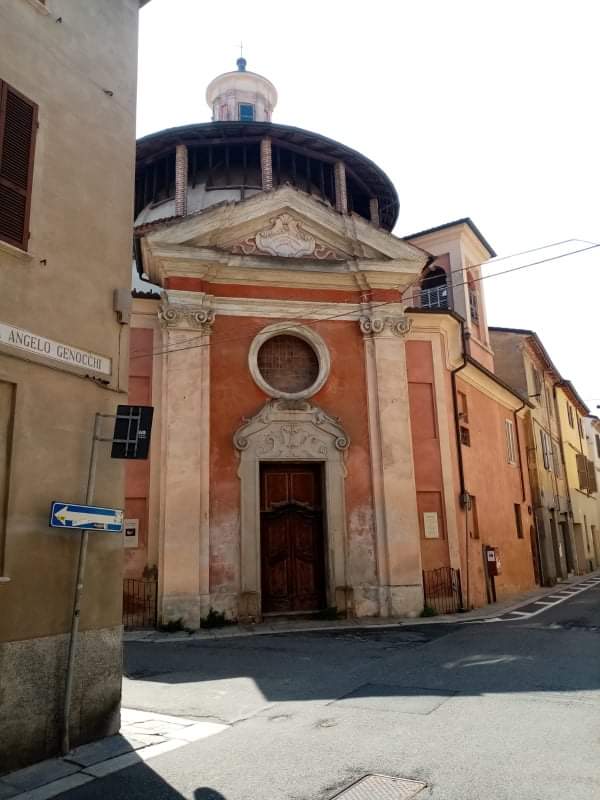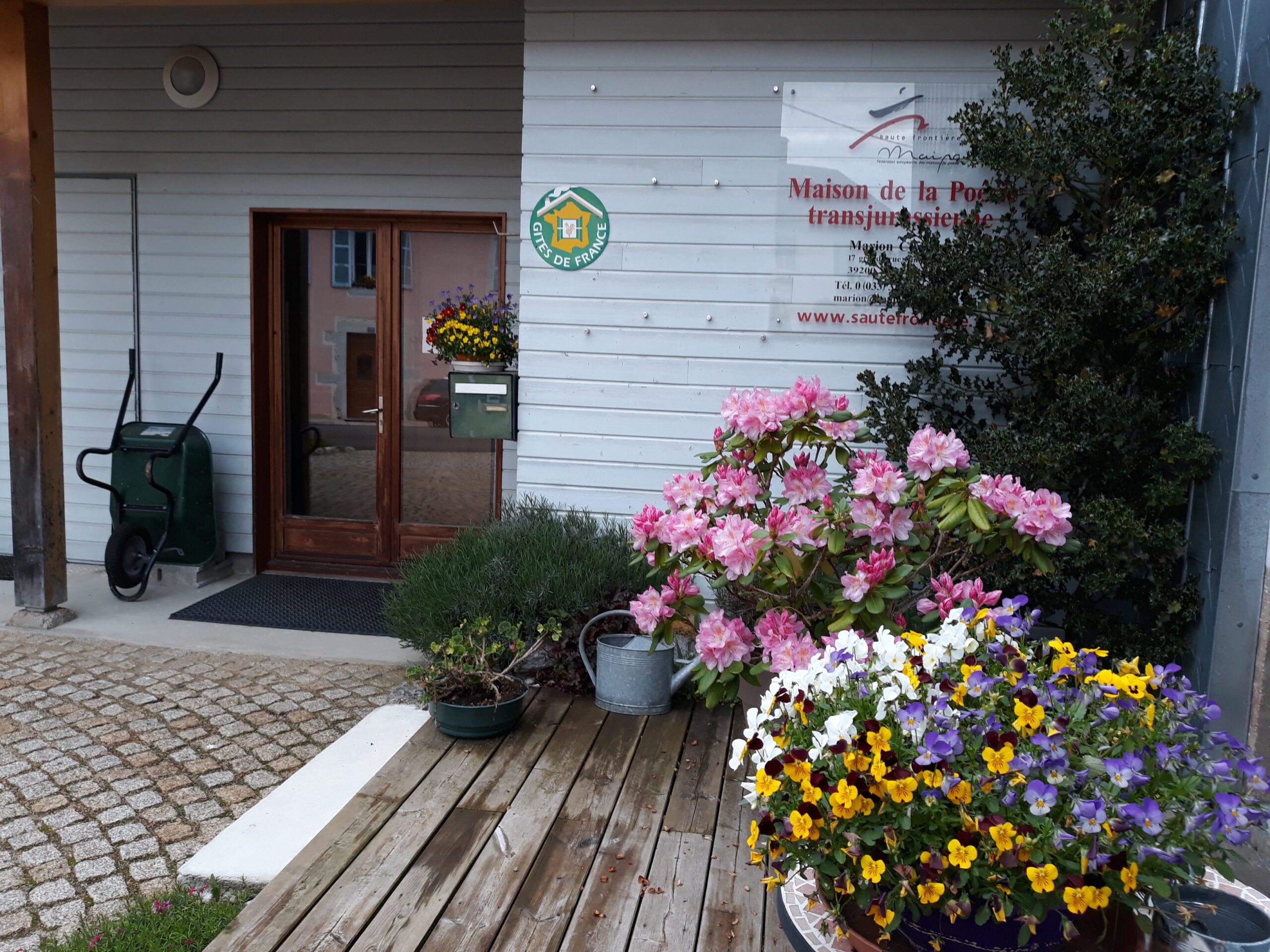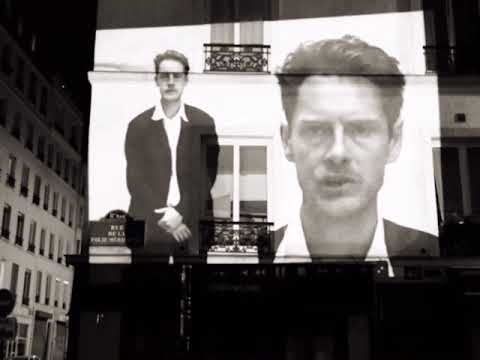Dear Iris. Could you please tell us what your relationship to language is through your poetic work ? Could you tell us how you connect with language through your poetry ?
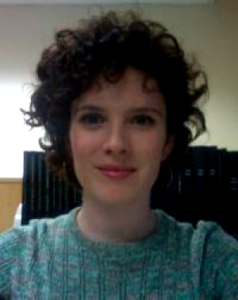
Iris Cushing
This spring, I’m teaching a basic writing class at a small college here in Brooklyn, and it suddenly occurred to me one day how simply amazing it is that language is the primary tool that we have to teach each other about language. When I’m talking about how to use a comma or an apostrophe, I’m using commas and apostrophes. I can’t think of any other system that works that way. When I’m making a poem, I try to stay very aware of not just what I’m saying, but what the limits of language will allow me to say. It’s very fun to come up against certain limits, moments when I realize “oh, I can’t say that, it doesn’t make sense,” and then find a way for it to make sense. The experience of using words in that way feels very true to the stories and emotions and images I’m creating. All of my poems are based on things I’ve actually experienced; I think my work as a poet is to find a way to transform personal experiences into verbal structures that constitute a new kind of experience.
In the Boston Review, the critic Katy Lederer wrote, about your poems : “Reading this work, I fell in love again with language. Not because it is beautiful or even particularly true, but rather because it transports.” What are you looking for in poems ?
Like Katy, I can definitely “fall in love” with transporting poems. When reading, I get very excited by poems that reach outside of the normal limits of what we consider a “poem,” what we consider “normal usage” of things like parts of speech, names, and narratives. I get excited when a poem is so curious about its own limits that it risks complete failure. When writing, I guess I’m looking for that too, although I realize that I’m not going to write in the same way as anyone else.
Could you tell us something about the mind of the splendid and surprising State Report ?
There are a lot of puns and verbal jokes that occur to me in unexpected moments, almost as if they are spoken to me by a voice coming from elsewhere. The poet Jack Spicer said something about a poet being like a radio that picks up signals from outer space; that perfectly describes where my puns come from. The idea to use “Wyoming” as a verb occurred to me in just such a way. I had several different versions of the poem, and I eventually settled on this one as the “finished” one. Something about the solitude and sense of longing conveyed in the poem belonged with Wyoming, which can be a very solitary, contemplative place.
You are a poet, and also a publisher of Argos Books publishing. What about your publishing work? What is the mind? The way? Could you elaborate on your work philosophy ?
My friend Elizabeth Clark Wessel and I started Argos Books two years ago, because we both love books and wanted to be involved with a community of people who also love them. We have a third editor, E.C. Belli, who is also a brilliant poet. I am a deep believer in making more of whatever you love in the world. I love contemporary poetry, especially innovative writing that opens up new questions about what’s possible with language. It’s a thrilling creative experience, reading and choosing and putting together books. It just so happens that most of the work we publish is by women.
To be a publisher as well as a poet, you must have a conception of words, maybe of the world, too ?
There’s an aspect of publishing that’s all about business : marketing, networking, and distributing your books. That part can feel very un-creative and boring. I’m still in the process of learning how I want Argos to “live” in the world, and I feel the same way about my own poems. The two endeavors go hand-in-hand. The poet Anna Moschavakis once said that small-press publishing was like a “big collaborative art project”; I love thinking of it that way.
The poet and translator Jacques Burko said that to translate poetry one must be a poet oneself. Are you also translator? If so, what does translating poetry mean to you? Does it mean loyalty to the poem at start or allowing the passage of a vision from one language to the other ?
I studied translation while I was getting my Master’s degree at Columbia, and have translated some poems from Spanish by Eugenia Brito and Marosa di Giorgio. Currently, Liz Clark Wessel (who is a translator from Swedish) and I are co-editing a magazine called Circumference, which focuses on poetry in translation. So, translation is something that I care very deeply about. The best translations, I believe, are done by people (poets or not) with an intimate understanding of both the language they’re translating from, and the spirit and intention of the poem they’re working with. I think being loyal to the literal “meaning” of a poem means being true to the time, place, and situation in which the poem was written, as well as to the poet who wrote it, which oftentimes leads a translator away from word-for-word translation.
You publish artists’ books. There were a lot of artists books in France in the 20e century, with René Char, Picasso, Miro… What is the purpose behind their limited edition ?
What books and works of art have in common is that they are both objects—they both have aesthetic considerations that influence how a viewer or reader experiences them. It’s very satisfying to me to make books that not only include visual art, but are considerate of the viewer/reader’s aesthetic experience, that try to make it interesting in some way. I’m fascinated by the history of artists’ books, and poets who have collaborated with artists in general. Actually, I find poetry to be more like painting than it is like other kinds of writing—fiction, journalism, etc. A poem can be like a verbal painting… I want the books I make to explore that.
At last, dear Iris : is there a poem which always goes with you ? Is there a poem which never leaves you ?
What a good question ! “The Proverbs of Hell” by William Blake is permanently etched in my memory. It’s not a poem exactly, but it was written by one of the greatest poets ever, contains very beautiful language, and offers very useful advice, such as: “Think in the morning. Act in the noon. Eat in the evening. Sleep at night.”
Propos recueillis par Matthieu Baumier et Gwen Garnier-Duguy avec l’aide d’Asha Gopaul-Pfau
Présentation de l’auteur
- ZÉNO BIANU : Rencontre avec Gwen Garnier Duguy - 7 juillet 2024
- L’honneur des poètes - 5 juillet 2021
- Revue des revues - 4 juillet 2021
- Marc ALYN, Le temps est un faucon qui plonge - 5 mai 2018
- Xavier Bordes : la conjuration du mensonge - 1 mars 2018
- Entretien avec Nohad Salameh - 1 mars 2018
- Rencontre avec Richard Millet - 8 novembre 2017
- RENCONTRE AVEC BERTRAND LACARELLE - 2 septembre 2017
- Jean-Louis VALLAS - 31 mars 2017
- Elie-Charles Flamand, La vigilance domine les hauteurs - 28 juillet 2016
- Elie-Charles Flamand - 21 juillet 2016
- Munesu Mabika De Cugnac : Un monde plus fort que le reste - 31 mai 2016
- ZÉNO BIANU - 29 mars 2016
- JAMES SACRÉ - 27 février 2016
- Avec Claire BARRÉ pour son roman ” Phrères” - 8 février 2016
- La collection poésie/Gallimard fête ses 50 ans : rencontre avec André VELTER - 3 janvier 2016
- André Velter/Ernest Pignon-Ernest, Pour l’amour de l’amour - 21 novembre 2015
- Conversation avec Xavier BORDES - 8 septembre 2015
- THAUMA, n°12, La Terre - 14 juillet 2015
- Jean Maison, Presque l’oubli - 5 juillet 2015
- Paul Pugnaud, Sur les routes du vent - 10 mai 2015
- JEAN-FRANÇOIS MATHÉ - 28 février 2015
- Juan Gelman, Vers le sud - 20 février 2015
- CHRISTOPHE DAUPHIN - 1 février 2015
- Claude Michel Cluny - 11 janvier 2015
- MARC DUGARDIN - 13 décembre 2014
- A‑M Lemnaru, Arcanes - 6 décembre 2014
- Maram al-Masri, L’amour au temps de l’insurrection et de la guerre - 30 novembre 2014
- Revue Les Hommes sans Epaules, n°38 - 1 novembre 2014
- Onzième n° de la revue THAUMA - 19 octobre 2014
- François Angot, A l’étale - 13 octobre 2014
- Si loin le rivage,d’Eva-Maria Berg - 14 septembre 2014
- Sur deux livres récents de Jigmé Thrinlé Gyatso - 7 septembre 2014
- Saraswati, revue de poésie, d’art et de réflexion, n°13 - 7 septembre 2014
- JEAN MAISON 2ème partie - 28 août 2014
- Nunc n° 33 : sur Joë Bousquet - 25 août 2014
- PHILIPPE DELAVEAU - 13 juillet 2014
- Le prix Charles Vildrac 2014 remis à notre ami et collaborateur le poète Jean Maison pour son recueil Le boulier cosmique (éditions Ad Solem) Extraits - 16 juin 2014
- Rencontre avec Nohad Salameh - 13 juin 2014
- Jean-François Mathé, La vie atteinte - 8 juin 2014
- PASCAL BOULANGER - 18 mai 2014
- Charles Bukowski, Les jours s’en vont comme des chevaux sauvages dans les collines - 21 avril 2014
- Paul Verlaine, Cellulairement - 7 avril 2014
- Regards sur la poésie française contemporaine des profondeurs (10) Arnaud Bourven - 6 avril 2014
- La vie lointaine de Jean Maison - 30 mars 2014
- L’Heure présente, Yves Bonnefoy - 23 mars 2014
- MARC ALYN - 22 février 2014
- BERNARD MAZO — AOÛT 2010 - 12 février 2014
- Regards sur la poésie française contemporaine des profondeurs (6) Pascal Boulanger - 8 février 2014
- Pierre Garnier - 1 février 2014
- Une nouvelle maison d’édition : Le Bateau Fantôme - 30 janvier 2014
- Regards sur la poésie française contemporaine des profondeurs (5) Gérard Bocholier - 26 janvier 2014
- Regards sur la poésie française contemporaine des profondeurs (4) : Alain Santacreu - 12 janvier 2014
- Regards sur la poésie française contemporaine des profondeurs (3) : Jean-François Mathé - 30 décembre 2013
- JEAN-LUC MAXENCE - 29 décembre 2013
- Rencontre avec Gilles Baudry - 30 novembre 2013
- A L’Index, n°24 - 25 novembre 2013
- Jean-Pierre Lemaire - 1 novembre 2013
- Regards sur la poésie française contemporaine des profondeurs (1) - 23 octobre 2013
- Le dernier mot cependant de Jean-Pierre Védrines - 16 octobre 2013
- Mille grues de papier, de Chantal Dupuy-Dunier - 9 octobre 2013
- Rencontre avec Balthus de Matthieu Gosztola - 29 septembre 2013
- Demeure le veilleur de Gilles Baudry - 25 septembre 2013
- EUGENIO DE SIGNORIBUS - 25 août 2013
- Dans la poigne du vent, de F.X Maigre - 16 juillet 2013
- L’extrême-occidentale de Ghérasim Luca - 8 juillet 2013
- Au commencement des douleurs, de Pascal Boulanger - 22 juin 2013
- Le 23e numéro de A l’Index - 20 mai 2013
- James Longenbach, Résistance à la poésie - 10 mai 2013
- Jean Grosjean, Une voix, un regard - 19 avril 2013
- Etienne Orsini, “Gravure sur braise” - 5 avril 2013
- Paroles à tous les vents, Boulic - 22 mars 2013
- Gérard Bocholier, ses deux derniers recueils - 15 mars 2013
- Jean-Pierre Lemaire, Faire place - 8 mars 2013
- Ariane Dreyfus, par Matthieu Gosztola - 2 mars 2013
- Marc Delouze, “14975 jours entre” - 24 février 2013
- Mangú : Le sens de l’épopée - 23 février 2013
- Les poèmes choisis de Paul Pugnaud - 9 février 2013
- Faites entrer l’Infini, n°54 - 2 février 2013
- Au coeur de la Roya - 19 janvier 2013
- Entretien avec Jean-Charles Vegliante - 24 novembre 2012
- Un regard sur Recours au Poème - 3 novembre 2012
- Pierrick de Chermont, “Portes de l’anonymat” - 7 octobre 2012
- Denis Emorine, “De toute éternité” - 6 octobre 2012
- Hommage à Sarane Alexandrian, Supérieur Inconnu n°30 - 6 août 2012
- POESIEDirecte n°19, le désir - 2 août 2012
- Marc Baron, Ma page blanche mon amour - 1 août 2012
- Bernard Grasset, Au temps du mystère… - 1 août 2012
- Totems aux yeux de rasoir - 19 juillet 2012
- Vers l’Autre - 5 juillet 2012
- Jean-Pierre Boulic - 2 juillet 2012
- Jean-Luc Wauthier - 2 juillet 2012
- Le bleu de Max Alhau - 30 juin 2012
- Jean Maison, Araire - 21 juin 2012
- Rencontre Jean MAISON [1ère partie] - 13 juin 2012
- Patrice de La Tour du Pin, le poète de la Joie - 18 mai 2012
- Rencontre avec Iris Cushing - 5 avril 2012
